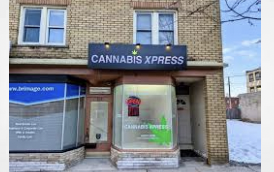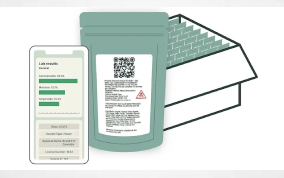Washington, DC (May 3, 2024) – The National Association of Criminal Defense Lawyers (NACDL) is urging President Biden to decriminalize marijuana and to grant clemency to individuals incarcerated for marijuana offenses. In a letter to the White House Counsel on April 30, the nation’s criminal defense bar urged immediate commutation of sentences, compassionate release, and second chances for persons convicted of marijuana offenses.
The AP has reported that the U.S. Drug Enforcement Agency (DEA) plans to reclassify marijuana as a less dangerous Schedule III drug, in the same category as prescription drugs such as ketamine, anabolic steroids, and testosterone. The DEA currently classifies marijuana as a Schedule I controlled substance with a high potential for abuse and no accepted medical use, in the same tier as heroin.
“While recognizing that cannabis a less dangerous drug is a positive step, decriminalization and decarceration must remain our top priorities,” said NACDL President Michael P. Heiskell of Fort Worth, TX. “To dismantle the failures of mass incarceration that have disproportionately impacted marginalized communities and people of color, Congress should enact legislation to deschedule cannabis, regulate the industry, and provide retroactive sentencing relief for individuals incarcerated for federal marijuana offenses. NACDL advocates that marijuana be regulated like tobacco and alcohol, because otherwise, cannabis will remain a federally controlled substance subject to prosecution.”
“Even as we move forward in redressing some of the failed policies and disparate impacts of the War on Drugs, the continued prosecution of marijuana crimes is causing irreparable harm to real people and their families,” said NACDL Resource Counsel Elizabeth Budnitz. “Men and women languish in federal prisons for conduct that is legal in many states today.”
The NACDL letter highlights examples of clients who deserve a second chance,” including Matthew Stevens, a hero who aided victims of the 2013 Boston Marathon bombing. Stevens received a 108-month sentence for a marijuana offense. Stevens bravely responded to the explosion, rendering aid to the injured and ensuring the safety of others. Despite having only minor, non-violent prior offenses, he was incarcerated until his release under the CARES Act over a year ago. However, his official release date remains May 17, 2026.
“Many cases demonstrate the human cost of outdated marijuana laws,” said Budnitz. “These individuals deserve clemency and a second chance to rebuild their lives, especially considering changes in marijuana legislation across the country.”
“The partial measure of reclassification – in contrast with the ultimate solution of decriminalization – would have only a limited impact on criminal justice cases involving marijuana,” said NACDL Executive Director Lisa M. Wayne. “While President Biden has granted pardons for federal marijuana possession cases, many more individuals languish in federal prisons with petitions pending for commutations of their sentences. NACDL urges the White House Counsel to consider these cases and the broader issues of decriminalization of cannabis and clemency or other retroactive relief for marijuana offenses.”
###



















